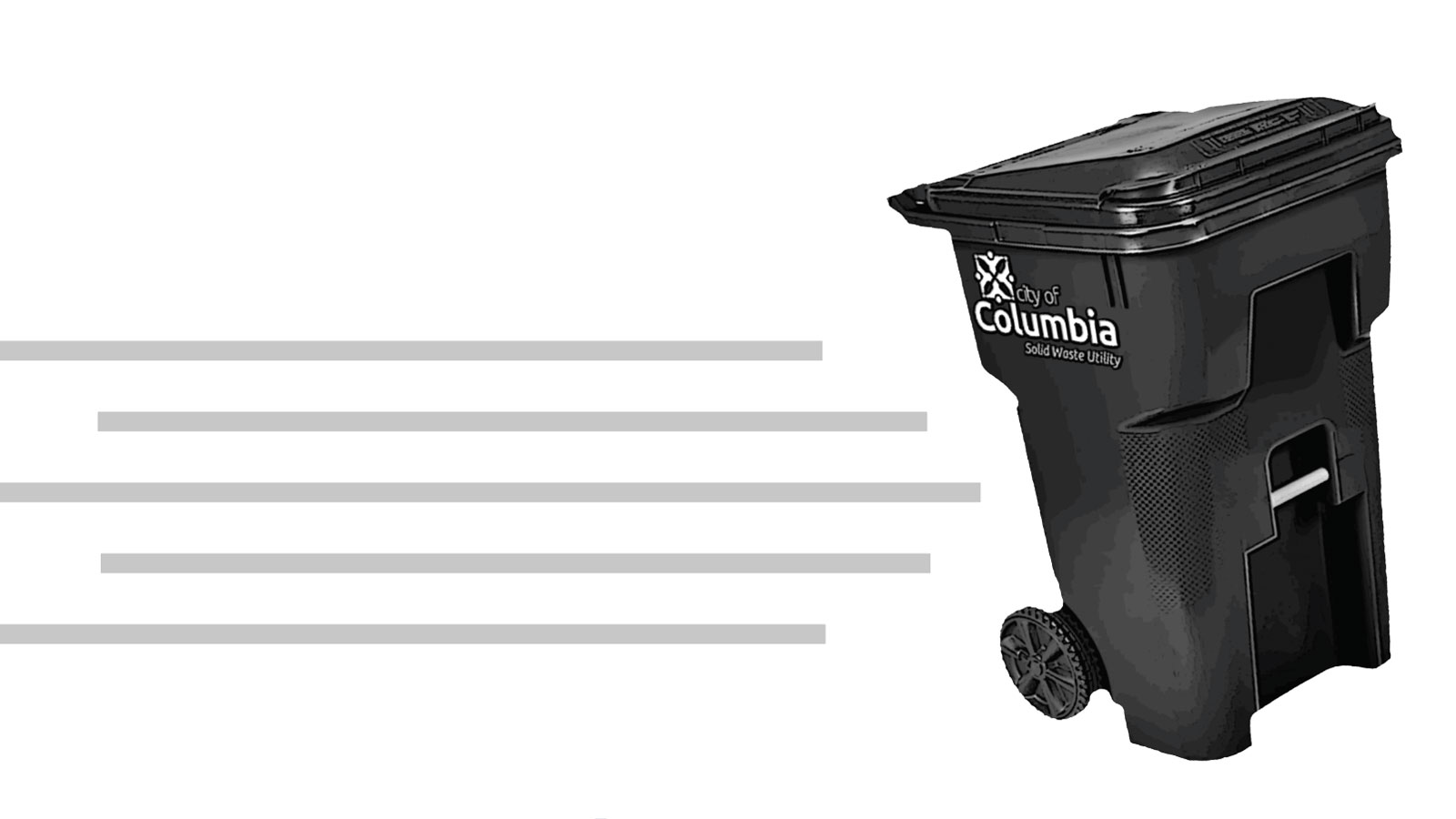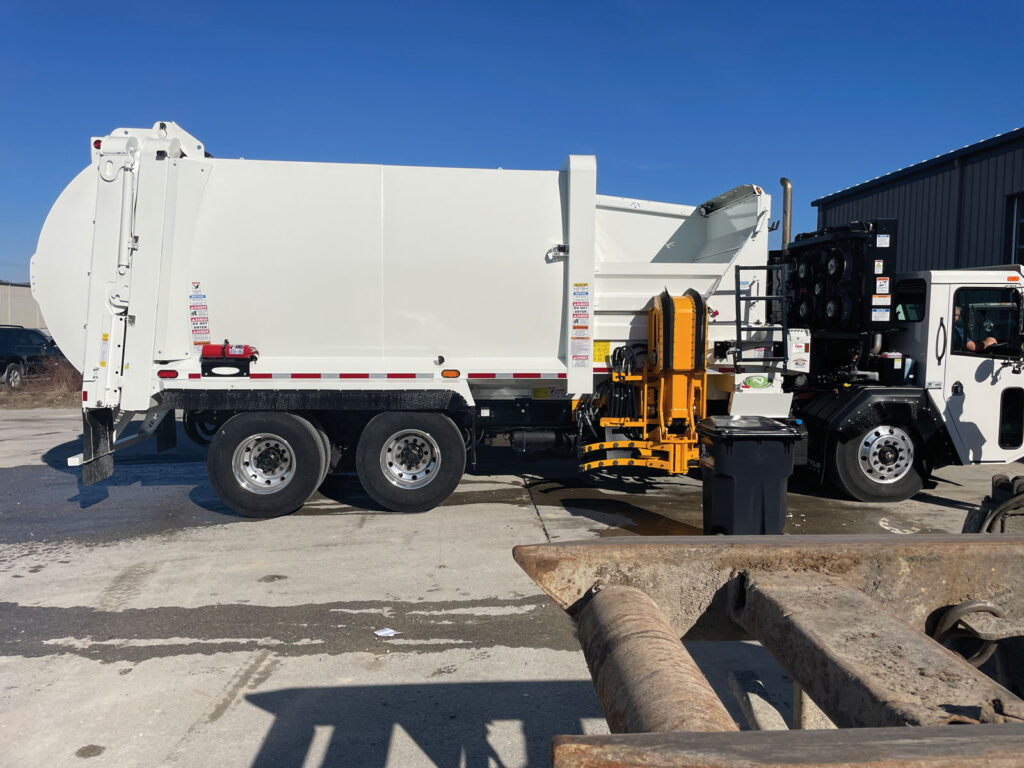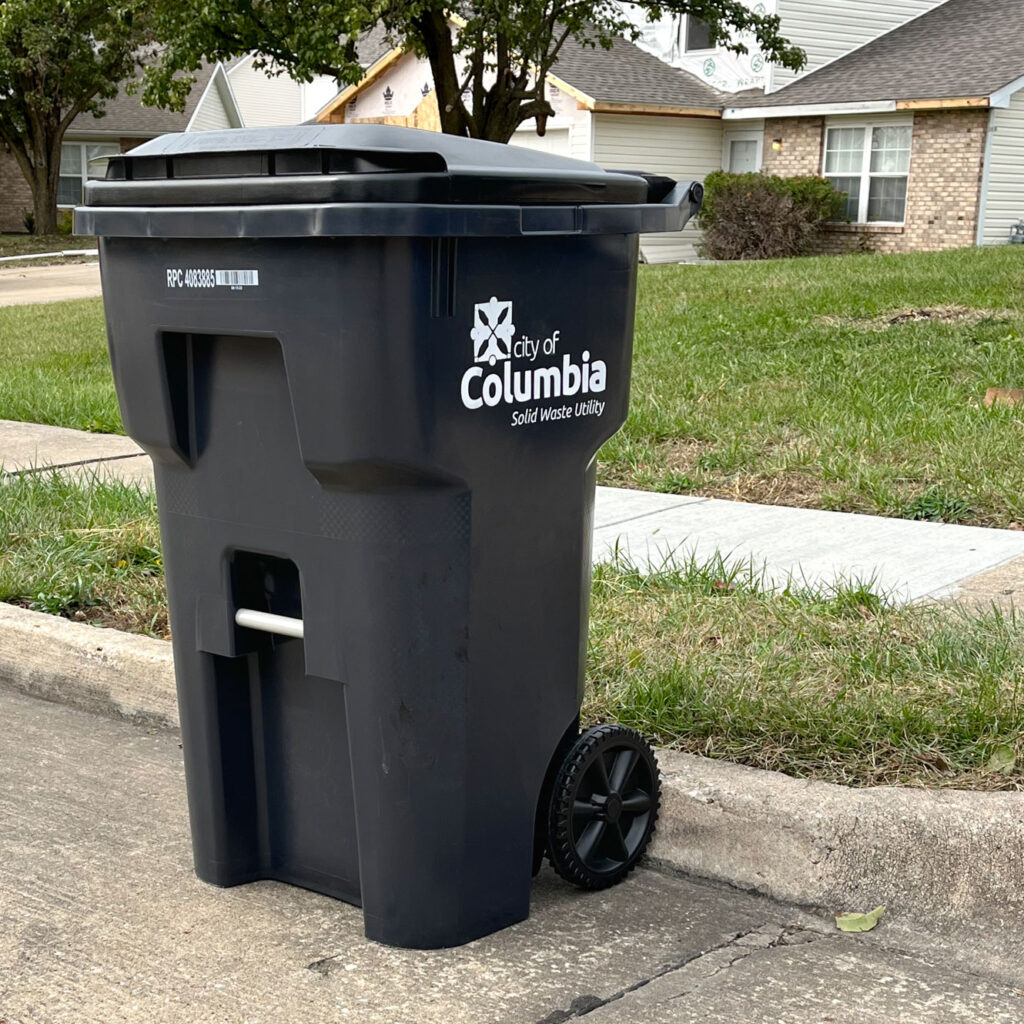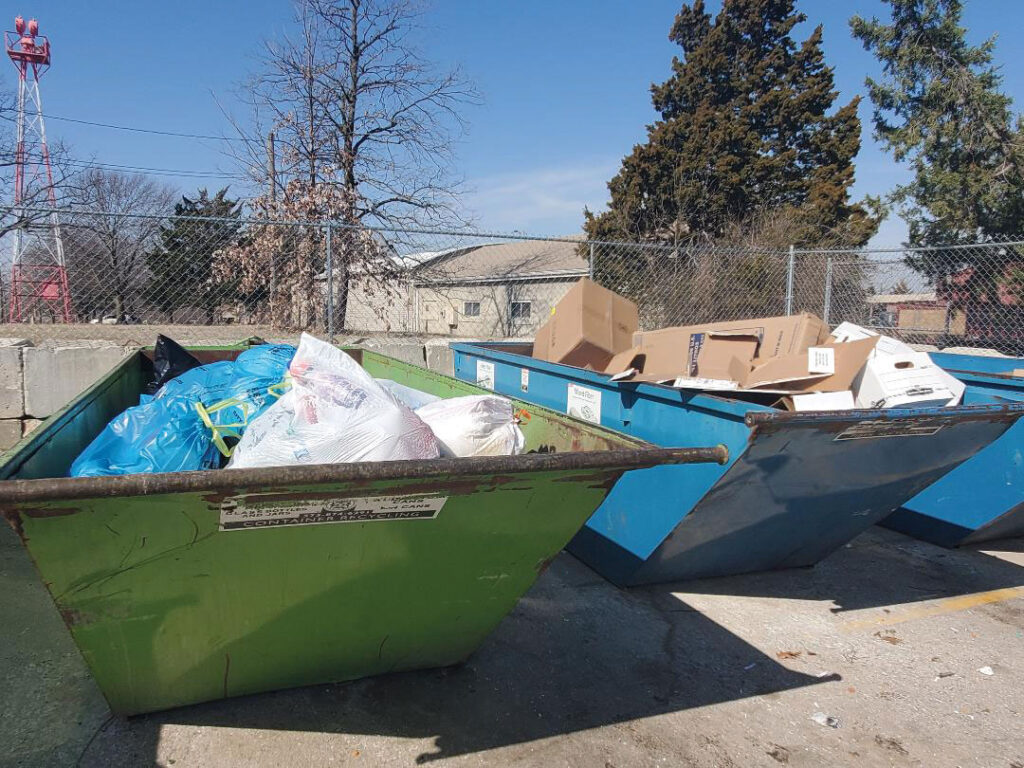Automated Trash Collection Rolls into Columbia
- This story originally appeared in the March 2024 innovation and technology issue of COMO Magazine.

Roll carts are expected to improve safety and boost interest in open positions.
At the end of January, homes around Columbia began receiving deliveries of roll carts for their trash. Deliveries continued through February in preparation for automated trash collection, which began on March 4. The implementation of the new program comes after several years of often contentious discussion and planning.
Matt Nestor, public information specialist for the city of Columbia utilities, said the idea first came to light in 2016. At that time, a group of citizens got petition signatures which put the proposal on the ballot for a city-wide vote.
“The measure got voted down, which prevented us from instituting roll carts at that time,” Nestor says.
As discussions continued about ways to improve trash collection, in 2021 the city started a “pay as you throw” program. Each home was initially provided with 104 trash bags with a city logo for use each year.
“If anybody needed more bags, they’d have to go to the store and buy the bags with the city logo,” Nestor says. “If residents were putting out more trash, they were paying more for it.”
But conversations about roll carts weren’t over, and from November 2022 through January 2023, Nestor says the city held citizen engagement meetings, allowing residents to share their opinions on the best way to move forward.
“Should we stick with bags, try roll carts?” Nestor says. “We got a lot of feedback from citizens, we went to the city council and said we’d like to move forward with roll carts.”
In March 2023, Columbia City Council voted unanimously to implement roll carts for trash collection. Every residence that has curbside trash collection is required to use the carts, Nestor says.

A Better Way of Trash Collection
Keeping Columbia clean isn’t an easy task, and before moving to automated collection, it was extremely physically demanding. According to Nestor, one of the most important benefits of moving to automated collection is improved worker safety.
“It’s a tough job, jumping on and off the back of the truck multiple times throughout the six or seven-hour day, especially days with zero-degree weather,” Nestor says. “There is too much of a risk for people getting hurt, getting sick, or injuring themselves.”
In addition to making it a safer job, Nestor says the city aims to make it a more desirable job, with a key goal of attracting more interest and more applicants for open positions.
“We are understaffed, and we are actively hiring and looking to fill positions,” Nestor said. “When actively hiring for the automated method of collection, we are hiring someone who is expected to sit in the truck and not do all that difficult manual labor. We think this will help recruit and retain drivers, which we’ve had issues with in the past.”

A Tailored Trash Solution
While the roll carts themselves are delivered at no cost to residents, residents are responsible for the cost of collection, just as they were with trash bags. Residents can choose from one of three roll carts based on their usage and needs, and the collection fee is based on the size of the cart.
A thirty-five-gallon cart holds two to three thirteen-gallon trash bags, with a collection fee of $12.87 per month. A sixty-five-gallon cart holds five to six thirteen-gallon bags, with a collection fee of $17.37, which was the cost of trash pickup before roll carts. A ninety-five-gallon cart holds seven to ten thirteen-gallon bags, with a collection fee of $22.50 per month.
“We understand that roll carts are not a one-size-fits-all for everybody,” Nestor says. “If a family wants to save money on their trash collection and go to a thirty-five-gallon cart, maybe they will look into ways they can reduce waste. There is a benefit to the environment if we can recycle more and make less waste.”
While the ability to select a cart size allows residents to tailor their trash collection to their needs, it also brings fees for trash collection in line with fees for other utilities that are based on usage, Nestor says.
All trash must go inside roll carts, Nestor says. Trash cannot be placed on the ground or top of carts. However, residents who require an extra pick-up can call the city to request an additional collection.
“If they need an additional collection they can call and schedule it for a fee,” Nestor says. “That fee will be added to their next month’s bill.”
Increased Tracking
The city will lease thirteen new trucks to handle the trash collection routes, including ten full-size trucks and three smaller trucks that can more efficiently navigate smaller streets in some of the older neighborhoods around the city.
“We have in our budget every year to replace older trucks, and instead of replacing the trucks last year we held on to the money in preparation for the switchover to the automated collection and used the money to enter into a lease for the new trucks,” Nestor says.
Instead of the eight routes the city ran with bag collection, it will now run ten shorter routes. With the new trucks and new collection system, the city will also have new capabilities of tracking collections through a unique bar code on each roll cart.
“We are going to be able to track the roll carts because customer bills are predicated on the size of the carts they are using,” Nestor says. “We don’t want one person to order a thirty-five-gallon cart and use their neighbor’s ninety-five-gallon and pay less. With the bar code, if a cart is taken or misused, we will be able to find it.”
The bar code will also allow drivers to easily and efficiently determine if residents have outstanding bills.
“With using the trash bag system, if someone hadn’t paid their bill, the driver didn’t know that,” Nestor says. “We have ways of knowing which cans belong to which addresses and which can’t have their carts emptied if someone isn’t paying their bills.”
Working Through Challenges
While the benefits outweigh the challenges, the new trash collection program is not without challenges for some Columbia residents.
“Change is hard,” Nestor says. “Through working with the citizens and hearing what a number of them had to say, and looking internally at our employment, we felt this was the best decision moving forward for the city.”
With the new roll cart program underway, Nestor says the city is continuously evaluating the program and is also looking at ways to improve the city’s recycling program. The city’s eight drop-off recycling centers will continue to operate around the city, and Nestor says the city currently doesn’t have the staff to operate curbside recycling.
However, the city is working with a consultant to review current methods and practices for recycling, and it will begin to review options and assess associated costs.
“Curbside recycling collection is something we want to do, but we have to do what’s best for everyone,” he says.

Curbside Recycling Service Resumes
Good news for Columbia’s environmentally conscious residents. Ten months after the city’s solid waste utility suspended the curbside recycling service, the service will resume on March 18.
The city suspended the recycling service on May 18, 2023, citing a lack of employees. Since then, residents have been taking their recyclables to drop-off locations around Columbia; in many instances creating overflowing heaps of plastics, bottles, cardboard, and similar products.
City Manager De’Carlon Seewood announced the recycling service restart in a February 25 news release. He said that customers who have an email address listed with utility customer service can expect emails with information on how to access an interactive collection map in the future. The city will also be providing more information about routes and other details on curbside recycling pickup before March 18.
The service will be provided every other week. Customers who want to use the service can place mixed containers and mixed fibers on the curb on their regular weekly pickup day. The collection routes have not changed.
Meanwhile, the drop-off sites will continue to operate, with some exceptions. Based on a consultant’s report and recommendations, the city is closing the recycling drop-off sites on the MU campus and downtown “because they are misused to the point where they are detrimental to the recycling operations,” said utility spokesman Matt Nestor. The South Providence and State Farm sites will be consolidated, and remaining sites will be gated and staffed to prevent abuse and misuse, he added
Residents will continue to use the blue, city-branded bags for mixed containers — glass, plastic, aluminum cans, and tin cans. Mixed fibers — cardboard, paper, magazines — should be bundled in a cardboard box or paper bag.
Nestor said the recycling service does not accept Styrofoam, plastic bags, paper plates, or beverage cartons.


